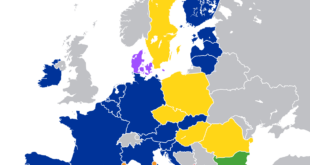- The Supreme Court on Wednesday ordered States and their police forces to stop prosecuting free speech on social media under Section 66A of the Information Technology Act which was declared unconstitutional by the court in a judgment seven years ago.
- The court found it both “distressing” and “terrible” that the police had continued to pick out people and prosecute them under the draconian Section regardless of the fact that the highest court in the country had struck down the law as “vague” and “chilling”.
- A Bench led by Chief Justice of India U.U. Lalit directed “all Directors General of Police as well as Home Secretaries of the States and competent officers in Union Territories to instruct their entire police force in their respective States/Union Territories not to register any complaint of crime with respect to alleged violation of Section 66A”.
- However, the court clarified that this direction would apply only to a charge under Section 66A and not extend to other offences in a case.
Section 66A:
- It empowered police to make arrests over what policemen, in terms of their subjective discretion, could construe as “offensive” or “menacing” or for the purposes of causing annoyance, inconvenience, etc.
- It prescribed the punishment for sending messages through a computer or any other communication device like a mobile phone or a tablet, and a conviction could fetch a maximum of three years in jail.
Issues with Section 66A:
Based on Undefined Actions:
The court observed that the weakness of Section 66A lay in the fact that it had created an offence on the basis of undefined actions: such as causing “inconvenience, danger, obstruction and insult”, which do not fall among the exceptions granted under Article 19 of the Constitution, which guarantees the freedom of speech.
Subjective Nature:
The court also observed that the challenge was to identify where to draw the line. Traditionally, it has been drawn at incitement while terms like obstruction and insult remain subjective.
No Procedural Safeguards:
- In addition, the court had noted that Section 66A did not have procedural safeguards like other sections of the law with similar aims, such as the need to obtain the concurrence of the Centre before action can be taken.
- Local authorities could proceed autonomously, literally on the whim of their political masters.
- The Court did not strike down two other provisions- sections 69A and 79 of the IT Act – and said that they can remain enforced with certain restrictions.
- Section 69A provides power to issue directions to block public access of any information through any computer resource and Sec 79 provides for exemption from liability of intermediary in certain cases.
Against the Fundamental Rights:
- Section 66A was contrary to both Articles 19 (free speech) and 21 (right to life) of the Constitution.
- Right to know is the species of the right to speech and expression provided by the Article 19(1) (a) of the constitution of India.
Police powers
- In March 2015, the Supreme Court had found the police powers of Section 66A too wide with scant respect for individual liberty and free expression on the Internet.
- The order had come on the basis of a petition filed by law student Shreya Singhal, who had highlighted cases of young people being arrested and charged under the ambiguous provision for their social media posts.
- Section 66A had prescribed three years’ imprisonment if a social media message caused “annoyance” or was found “grossly offensive”.
- The court had concluded the provision to be vague and worded arbitrarily.
SOURCE: THE HINDU, THE ECONOMIC TIMES, PIB
 Chinmaya IAS Academy – Current Affairs Chinmaya IAS Academy – Current Affairs
Chinmaya IAS Academy – Current Affairs Chinmaya IAS Academy – Current Affairs



